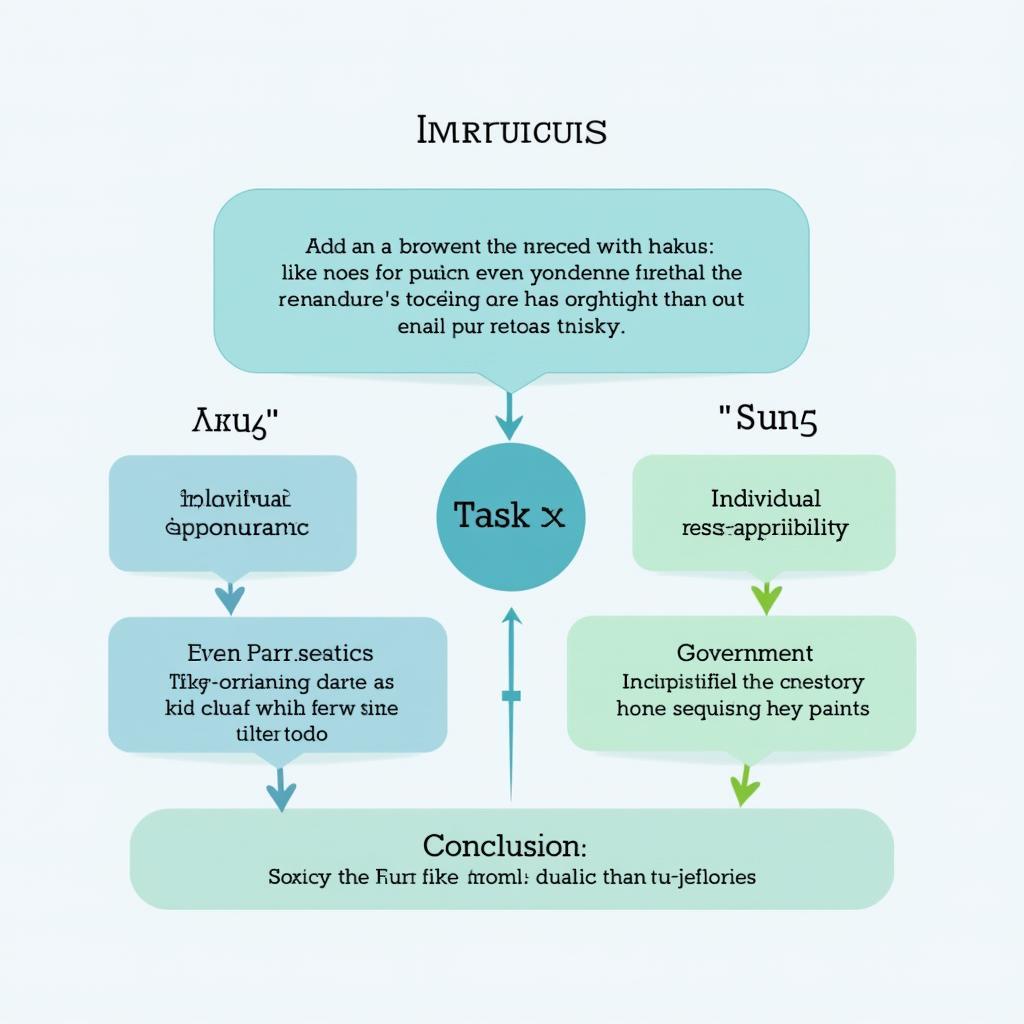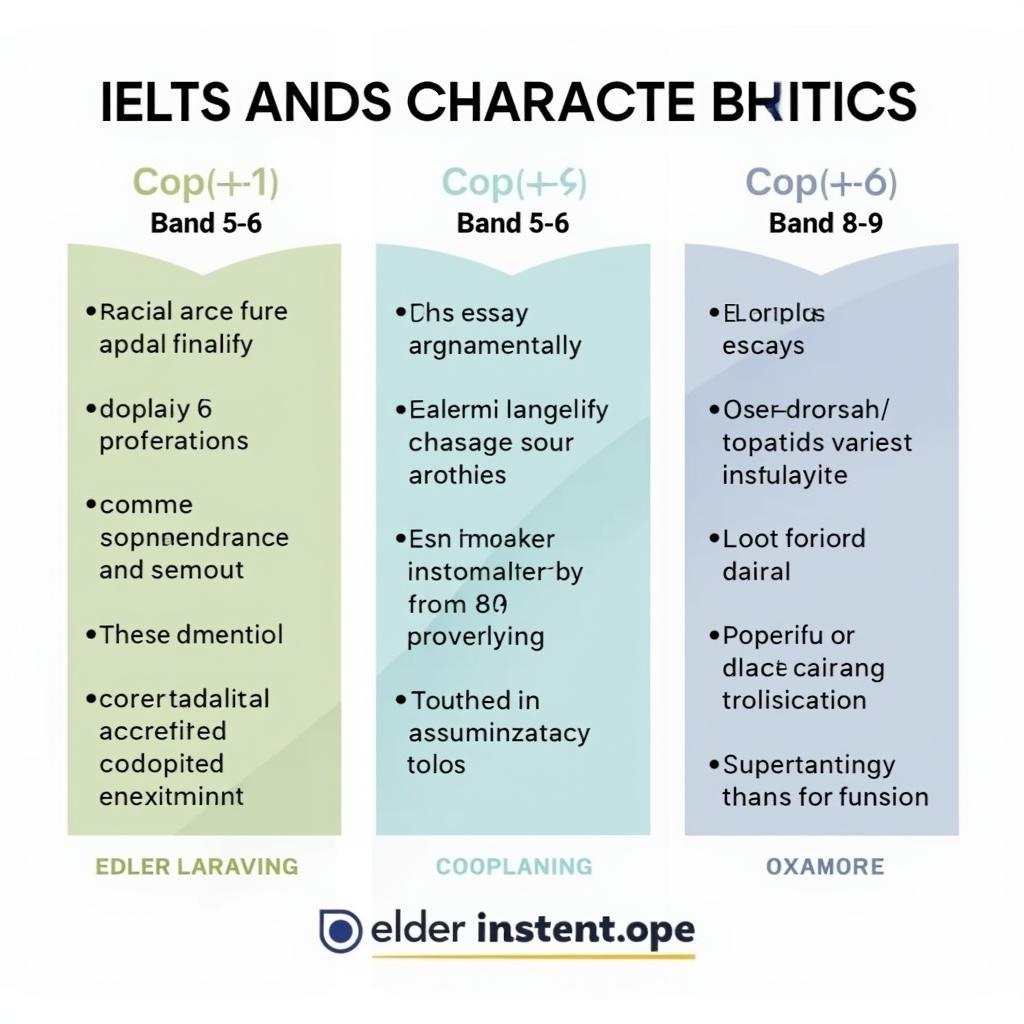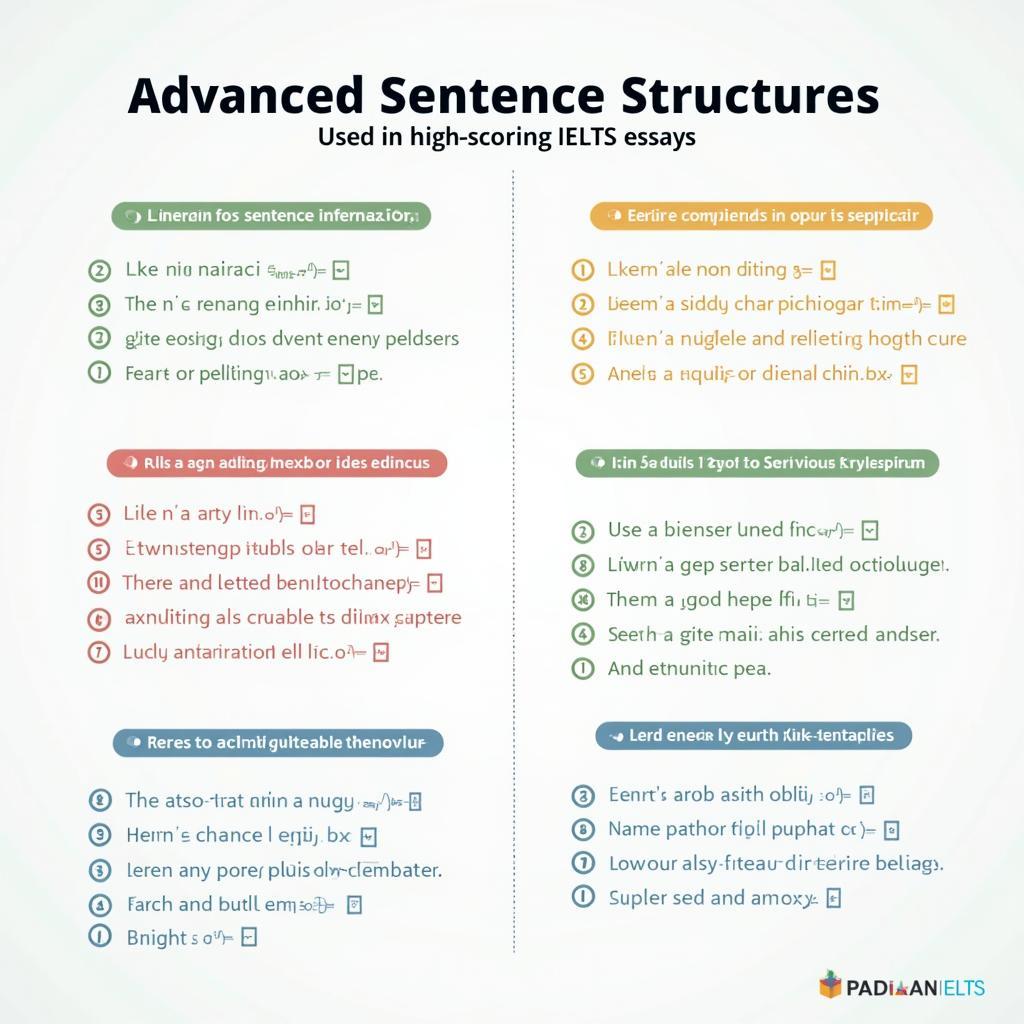Introduction
The topic of elder care has become increasingly prevalent in IELTS Writing Task 2 examinations, reflecting global demographic shifts and societal concerns about aging populations. This comprehensive guide provides three authentic sample essays spanning Band 6 to Band 9, complete with detailed scoring analysis, essential vocabulary, and high-scoring sentence structures to help you master this critical topic.
Table Of Contents
- Introduction
- Question & Analysis
- Band 8-9 Sample Essay
- Band Score Analysis
- Band 6.5-7 Sample Essay
- Band Score Analysis
- Band 5-6 Sample Essay
- Band Score Analysis
- Learning from Mistakes
- Essential Vocabulary
- High-Scoring Sentence Structures
- 1. Complex Conditional with Inversion
- 2. Non-defining Relative Clauses
- 3. Participle Phrases for Conciseness
- 4. Cleft Sentences for Emphasis
- 5. Concessive Clauses with “While/Although”
- 6. Passive Constructions with Modal Verbs
- Self-Assessment Checklist
- Before Writing (5 minutes)
- While Writing (35 minutes)
- After Writing (5 minutes)
- Time Management Tips
- Conclusion
Understanding how to approach elder care questions is essential for IELTS success, as this theme frequently appears in various forms throughout actual examinations. You’ll learn to navigate different question types, develop compelling arguments, and use sophisticated language naturally and effectively.
Verified past IELTS questions on this topic include:
- “Some people believe that it is the responsibility of individuals to look after their elderly relatives. Others say that the government should pay for this care. Discuss both views and give your opinion.” (Academic, 2022)
- “In many countries, the proportion of older people is steadily increasing. Does this trend have more positive or negative effects on society?” (Academic, 2021)
- “Many elderly people are no longer looked after by their families but are put in care homes or nursing homes. What are the advantages and disadvantages of this trend?” (Academic, 2023)
Question & Analysis
Some people believe that it is the responsibility of individuals to look after their elderly relatives. Others say that the government should pay for this care. Discuss both views and give your opinion.
Question Type: Discussion + Opinion essay
Key Terms Explained:
- Responsibility of individuals: Personal obligation by family members to provide care
- Elderly relatives: Aging family members requiring assistance
- Government should pay: State-funded care systems through taxation
- Discuss both views: Present balanced arguments for each perspective
- Give your opinion: Clear personal stance required
Common Pitfalls:
- Discussing only one view without balanced coverage
- Failing to provide a clear personal opinion
- Using generic arguments without specific examples
- Confusing elder care with healthcare systems generally
Strategic Approach:
- Introduction: Paraphrase question + thesis statement with your opinion
- Body Paragraph 1: Arguments for individual responsibility (2-3 points)
- Body Paragraph 2: Arguments for government responsibility (2-3 points)
- Body Paragraph 3: Your opinion with justification
- Conclusion: Summarize both views + restate opinion
Band 8-9 Sample Essay
What Makes This Essay Band 8-9:
This essay demonstrates sophisticated control of language, cohesive argumentation, and nuanced exploration of both perspectives while maintaining a clear personal stance throughout.
The question of who should bear responsibility for elderly care has become increasingly contentious in aging societies worldwide. While some advocate for family-based care arrangements, others contend that governments should shoulder this burden through publicly funded systems. This essay will examine both perspectives before arguing that a collaborative approach represents the most sustainable solution.
Those who support individual responsibility emphasize the intrinsic value of family bonds and cultural traditions. In many Asian societies, filial piety remains deeply embedded in cultural consciousness, with adult children viewing elder care as a moral obligation rather than a burden. Furthermore, family members typically possess intimate knowledge of their relatives’ preferences, medical histories, and emotional needs, enabling them to provide personalized care that institutional settings struggle to replicate. This arrangement also strengthens intergenerational relationships, allowing elderly individuals to maintain dignity and connection within familiar environments rather than facing the isolation that often characterizes institutional care.
Conversely, proponents of government-funded care highlight the practical limitations and inequalities inherent in family-based systems. Not all families possess the financial resources, physical capacity, or medical expertise required to adequately care for aging relatives, particularly those suffering from conditions such as dementia or severe mobility impairments. This topic has similarities with the importance of pension systems, which also addresses how societies can better support aging populations through structured frameworks. State-funded programs can ensure universal access to professional care regardless of socioeconomic status, preventing situations where elderly citizens receive inadequate support simply because their families lack means. Additionally, as life expectancy increases and family structures evolve, with smaller family sizes and greater geographic mobility, traditional care models become increasingly unsustainable.
In my view, the most effective approach combines individual involvement with robust government support. Families should maintain primary emotional and social connections with elderly relatives while governments provide financial assistance, healthcare infrastructure, and professional care services. This hybrid model, successfully implemented in Scandinavian countries, allows families to focus on relationship maintenance rather than becoming overwhelmed by caregiving demands. For instance, government subsidies for home care workers enable elderly people to remain in their residences while receiving professional assistance, preserving both family bonds and care quality.
In conclusion, although both individual and government responsibility have merit, neither approach alone adequately addresses the complexities of modern elder care. A collaborative framework that leverages family connections alongside state resources offers the most compassionate and practical solution for aging populations globally.
Word Count: 418 words
 IELTS Writing Task 2 essay structure diagram showing introduction body paragraphs and conclusion for elder care topic
IELTS Writing Task 2 essay structure diagram showing introduction body paragraphs and conclusion for elder care topic
Band Score Analysis
| Criteria | Band | Justification |
|---|---|---|
| Task Response | 9 | Fully addresses all parts of the task with thoroughly developed ideas. Presents balanced discussion of both views with clear, well-justified personal opinion. Each paragraph explores perspectives with specific examples and sophisticated reasoning. |
| Coherence & Cohesion | 9 | Seamlessly organized with skillful use of cohesive devices. Ideas progress logically through clear paragraphing. Uses sophisticated transition phrases (“Conversely,” “In my view”) without mechanical overuse. Referencing and substitution are skillfully managed. |
| Lexical Resource | 9 | Wide range of vocabulary used with natural precision and sophistication. Demonstrates excellent control of collocation (“intrinsic value,” “filial piety,” “intimate knowledge”). Rare minor errors do not impede communication. Less common lexical items enhance meaning (“contentious,” “replicate,” “leverage”). |
| Grammatical Range & Accuracy | 9 | Wide range of structures used flexibly and accurately. Complex sentences demonstrate sophisticated control. Error-free sentences predominate with only extremely rare slips. Uses participle phrases, relative clauses, and advanced conditional structures naturally. |
Why This Essay Excels:
- Sophisticated thesis statement that signals the essay structure and personal opinion from the introduction
- Nuanced vocabulary that demonstrates precision rather than thesaurus abuse (“contentious,” “intrinsic value,” “filial piety”)
- Complex sentence structures used naturally to express complex ideas without forcing grammatical complexity
- Specific cultural references (Asian societies, Scandinavian countries) that demonstrate real-world knowledge
- Balanced argumentation that gives equal weight to both perspectives before presenting opinion
- Cohesive progression where each paragraph builds logically on previous ideas
- Strong concluding statement that synthesizes arguments and reinforces position clearly
Band 6.5-7 Sample Essay
What Makes This Essay Band 6.5-7:
This essay demonstrates competent control of language with clear organization, though it lacks the sophistication and nuance of higher band scores. Ideas are relevant but less fully developed.
In modern society, the question of who should take care of elderly people has become an important issue. Some people think families should look after their elderly relatives, while others believe the government should provide this care. This essay will discuss both views and give my opinion.
On one hand, there are several reasons why individuals should be responsible for their elderly relatives. Firstly, family members know their elderly relatives better than anyone else, so they can provide better personal care. For example, they understand their preferences for food, daily routines, and emotional needs. Secondly, taking care of elderly parents is part of many cultures and traditions, especially in Asian countries where respect for elders is very important. When families care for their elderly members, it also teaches younger generations about responsibility and family values. Finally, elderly people often feel happier and more comfortable when they stay with their families rather than going to care homes where they might feel lonely.
On the other hand, there are good arguments for government-funded elder care. The main reason is that not all families have enough money or time to take care of elderly relatives properly. Many people need to work full-time jobs and cannot stay at home to provide care all day. Additionally, some elderly people have serious health problems that require professional medical care, which family members may not be trained to provide. Understanding how digital transformation impacts healthcare services can help us recognize why professional care facilities are increasingly necessary in modern societies. If the government pays for care homes and professional carers, it ensures that all elderly people receive proper care regardless of their family’s financial situation. This is especially important as people are living longer and need more care in their old age.
In my opinion, I believe both families and governments should share the responsibility for elder care. Families should maintain close relationships with their elderly relatives and provide emotional support, while governments should offer financial help and professional care services. This approach combines the benefits of family love with professional expertise. For instance, governments could provide subsidies to help families hire professional carers to visit elderly people at home, allowing them to stay with their families while receiving expert care.
In conclusion, while both individual and government responsibility have advantages, I think a combined approach works best for taking care of elderly people in modern society.
Word Count: 442 words
Band Score Analysis
| Criteria | Band | Justification |
|---|---|---|
| Task Response | 7 | Addresses all parts of the task with clear position throughout. Ideas are relevant and developed, though some points lack the depth of Band 8-9. Examples are present but could be more specific and sophisticated. |
| Coherence & Cohesion | 7 | Information and ideas are logically organized with clear progression. Cohesive devices are used effectively but with some mechanical features (“Firstly,” “Secondly,” “Finally”). Paragraphing is appropriate and clear. |
| Lexical Resource | 6.5 | Adequate range of vocabulary for the task with attempts at less common items. Some collocation errors and word choice limitations (“important issue,” “better personal care”). Vocabulary is generally appropriate but lacks sophistication. |
| Grammatical Range & Accuracy | 7 | Uses a variety of complex structures with good control. Some errors occur but do not impede communication. Mix of simple and complex sentences demonstrates competent grammatical range. |
Direct Comparison with Band 8-9:
| Aspect | Band 8-9 | Band 6.5-7 |
|---|---|---|
| Introduction | “increasingly contentious” | “important issue” |
| Argument depth | “filial piety remains deeply embedded in cultural consciousness” | “respect for elders is very important” |
| Cohesion | Natural transitions (“Conversely,” “In my view”) | More mechanical (“On one hand,” “Firstly,” “Secondly”) |
| Vocabulary precision | “intrinsic value,” “intimate knowledge” | “know better,” “proper care” |
| Sentence complexity | Multiple clause embedding naturally | Simpler complex structures |
| Conclusion sophistication | Synthesizes with nuance | States position simply |
Band 5-6 Sample Essay
What Makes This Essay Band 5-6:
This essay addresses the task with basic organization and relevant ideas, but contains noticeable errors in grammar and vocabulary. The development is limited and relies on generalized statements.
Nowadays, many countries have problem with taking care of old people. Some people says that family should take care of their old relatives, but other people think government should do this job. In this essay, I will discuss both side and give my opinion.
First, I will talk about why family should take care of old people. Family members are close to old people and they know what old people like and don’t like. For example, they know what food the old person likes to eat. Also, in many country like China and Vietnam, it is tradition that children take care of their parents when they become old. This is important for culture. When old people stay with family, they feel more happy because they are not alone. Care homes make old people sad because they miss their family.
Second, there are reason why government should pay for old people care. Many family don’t have money to take care old people because it is very expensive. Also, some people have to work everyday and cannot stay home to take care. Old people sometimes have many health problem and need doctor and nurse to help them. Family cannot do this job if they don’t have training. Similar to the importance of retirement savings for long-term security, having proper care systems ensures elderly people receive adequate support. If government build care home and pay for it, all old people can get help even if their family is poor. This is more fair for everyone.
I think both family and government should help to take care old people. Family can visit old people and make them feel love, and government can give money and build good care home. This way is better because old people get both love from family and professional help from government. For example, government can give money to family to hire nurse come to house, so old people can stay at home but also get good care.
To conclude, family care and government care both have good points. I believe if family and government work together, old people will get best care and feel more happy in their life.
Word Count: 398 words
Band Score Analysis
| Criteria | Band | Justification |
|---|---|---|
| Task Response | 6 | Addresses the task though some parts are underdeveloped. Position is stated but reasoning is simplistic. Ideas are relevant but examples lack specificity and depth. |
| Coherence & Cohesion | 5.5 | Information organized with some coherence but cohesive devices are basic and sometimes faulty. Paragraphing is present but mechanical (“First,” “Second”). Progression is not always clear. |
| Lexical Resource | 5.5 | Limited vocabulary range with noticeable errors (“problem with taking care,” “reason why”). Attempts to use less common vocabulary occasionally successful. Word choice errors sometimes impede meaning. |
| Grammatical Range & Accuracy | 5.5 | Limited range of structures with frequent grammatical errors (“people says,” “don’t have money to take care old people”). Errors sometimes impede communication though meaning is generally clear. Simple sentences predominate with attempts at complex structures. |
Learning from Mistakes
| Mistake | Error Type | Correction | Explanation |
|---|---|---|---|
| “Some people says” | Subject-verb agreement | “Some people say” | “People” is plural, requires plural verb form “say” not “says” |
| “both side” | Singular/plural error | “both sides” | “Both” requires plural noun form |
| “in many country” | Singular/plural error | “in many countries” | “Many” requires plural noun |
| “don’t have money to take care old people” | Missing preposition | “don’t have money to take care of old people” | Phrasal verb “take care of” requires preposition “of” |
| “there are reason” | Subject-verb agreement | “there are reasons” | “Are” (plural) requires plural noun “reasons” |
| “make them feel love” | Word form error | “make them feel loved” | Need past participle “loved” as adjective here |
| “build care home” | Article missing | “build care homes” | Need plural “homes” or article “a care home” |
| “come to house” | Article missing | “come to the house” | Need definite article “the” before “house” |
How to Improve from Band 6 to 7:
- Grammar accuracy: Review subject-verb agreement and article usage systematically
- Vocabulary range: Learn topic-specific collocations (“elder care,” “provide adequate support,” “professional expertise”)
- Sentence complexity: Practice combining ideas using relative clauses and subordinating conjunctions
- Example specificity: Replace general statements with concrete examples from real countries or situations
- Cohesion: Move beyond basic linking words to more sophisticated transitions
- Task response depth: Develop each idea with explanation + example + consequence rather than single sentence points
 Comparison chart showing differences between IELTS Writing Band 5 6 7 and 8 9 essay characteristics
Comparison chart showing differences between IELTS Writing Band 5 6 7 and 8 9 essay characteristics
Essential Vocabulary
| Word/Phrase | Type | Pronunciation | Definition | Example | Collocations |
|---|---|---|---|---|---|
| Filial piety | Noun phrase | /ˈfɪl.i.əl ˈpaɪ.ə.ti/ | Respect and care for one’s parents and elderly family members | Filial piety remains a cornerstone of many Asian cultures. | Deep filial piety, practice filial piety, sense of filial piety |
| Elder care | Noun phrase | /ˈel.dər ker/ | Services and support provided to elderly people | Quality elder care requires both resources and compassion. | Provide elder care, professional elder care, comprehensive elder care |
| Institutional care | Noun phrase | /ˌɪn.stɪˈtjuː.ʃən.əl ker/ | Care provided in facilities like nursing homes | Many elderly people prefer home care to institutional care. | Quality institutional care, long-term institutional care, residential institutional care |
| Intergenerational | Adjective | /ˌɪn.təˌdʒen.əˈreɪ.ʃən.əl/ | Relating to or involving different age groups | Intergenerational relationships benefit both young and old. | Intergenerational bonds, intergenerational transfer, intergenerational care |
| Bear responsibility | Verb phrase | /ber rɪˌspɒn.səˈbɪl.ə.ti/ | To accept duty or obligation for something | Families should bear some responsibility for elderly relatives. | Bear primary responsibility, bear financial responsibility, bear full responsibility |
| Socioeconomic status | Noun phrase | /ˌsəʊ.si.əʊ.ˌiː.kəˈnɒm.ɪk ˈsteɪ.təs/ | Social standing based on income and education | Elder care access often depends on socioeconomic status. | Low socioeconomic status, improve socioeconomic status, regardless of socioeconomic status |
| Life expectancy | Noun phrase | /laɪf ɪkˈspek.tən.si/ | Average period a person is expected to live | Increasing life expectancy creates greater care demands. | Rising life expectancy, average life expectancy, extended life expectancy |
| Demographic shift | Noun phrase | /ˌdem.əˈɡræf.ɪk ʃɪft/ | Significant change in population characteristics | Demographic shifts toward aging require policy responses. | Major demographic shift, significant demographic shift, global demographic shift |
| Personalized care | Noun phrase | /ˈpɜː.sən.əl.aɪzd ker/ | Care tailored to individual needs and preferences | Family members can provide more personalized care. | Highly personalized care, deliver personalized care, require personalized care |
| Professional expertise | Noun phrase | /prəˈfeʃ.ən.əl ˌek.spɜːˈtiːz/ | Specialized knowledge and skills | Complex medical conditions require professional expertise. | Lack professional expertise, provide professional expertise, draw on professional expertise |
| Dignity | Noun | /ˈdɪɡ.nə.ti/ | The state of being worthy of respect | Maintaining dignity is crucial in elder care settings. | Preserve dignity, maintain dignity, lose dignity |
| Caregiving demands | Noun phrase | /ˈker.ɡɪv.ɪŋ dɪˈmɑːndz/ | Physical and emotional requirements of providing care | Overwhelming caregiving demands can strain families. | Meet caregiving demands, cope with caregiving demands, manage caregiving demands |
| State-funded | Adjective | /steɪt ˈfʌn.dɪd/ | Paid for by government money | State-funded programs ensure universal access to care. | State-funded services, state-funded system, state-funded healthcare |
| Universal access | Noun phrase | /ˌjuː.nɪˈvɜː.səl ˈæk.ses/ | Availability to all people regardless of circumstances | Universal access to elder care remains a policy goal. | Ensure universal access, provide universal access, achieve universal access |
| Collaborative approach | Noun phrase | /kəˈlæb.ər.ə.tɪv əˈprəʊtʃ/ | Method involving cooperation between parties | A collaborative approach combines family and state resources. | Adopt collaborative approach, require collaborative approach, foster collaborative approach |
High-Scoring Sentence Structures
1. Complex Conditional with Inversion
Formula: Should/Were/Had + subject + verb, main clause
Example from Band 8-9 essay: “Should governments fail to provide adequate support systems, vulnerable elderly populations would face increasing hardship and marginalization.”
Why it scores well: Demonstrates sophisticated grammatical control with inverted conditional structure, showing ability to manipulate word order for emphasis and stylistic effect.
Additional examples:
- “Were families to receive comprehensive government subsidies, they could provide higher quality home-based care.”
- “Had policymakers anticipated demographic changes earlier, current elder care systems would be better equipped.”
- “Should life expectancy continue rising at current rates, traditional family care models will become increasingly unsustainable.”
Common mistakes to avoid:
- ❌ “Should governments fails to provide…” (incorrect verb form)
- ❌ “If governments should fail to provide…” (mixing conditional types)
2. Non-defining Relative Clauses
Formula: Main clause, which/who + additional information, continuation
Example from Band 8-9 essay: “This hybrid model, which has been successfully implemented in Scandinavian countries, allows families to focus on relationship maintenance.”
Why it scores well: Adds sophisticated descriptive information while maintaining sentence flow, demonstrating ability to embed clauses naturally without disrupting coherence.
Additional examples:
- “Elder care facilities, which often struggle with staffing shortages, cannot always provide the personalized attention families offer.”
- “Many Asian societies, where filial piety remains culturally significant, continue to favor family-based care arrangements.”
- “Professional caregivers, who possess specialized medical training, can address complex health conditions more effectively.”
Common mistakes to avoid:
- ❌ “This model, that has been implemented…” (using “that” in non-defining clause)
- ❌ “This model which has been implemented allows…” (missing commas)
3. Participle Phrases for Conciseness
Formula: Present/past participle phrase, main clause OR Main clause, participle phrase
Example from Band 8-9 essay: “Recognizing the practical limitations of family care, progressive governments have implemented comprehensive support systems.”
Why it scores well: Combines ideas economically while showing cause-effect or simultaneous action relationships, demonstrating sophisticated ability to condense information.
Additional examples:
- “Having witnessed their parents’ struggles, many middle-aged adults advocate for improved elder care policies.”
- “Faced with budget constraints, governments often prioritize acute care over long-term elder services.”
- “Understanding these challenges, policymakers must develop innovative funding mechanisms.”
Common mistakes to avoid:
- ❌ “Recognizing the limitations, families struggle…” (dangling modifier – unclear who is recognizing)
- ❌ “Recognized the limitations, governments…” (incorrect participle form)
4. Cleft Sentences for Emphasis
Formula: It is/was + emphasized element + that/who + remainder
Example from Band 8-9 essay: “It is the combination of family involvement and government support that offers the most sustainable solution.”
Why it scores well: Strategically emphasizes key information, demonstrating ability to manipulate sentence structure for rhetorical effect and clear communication of main ideas.
Additional examples:
- “It is financial constraints rather than lack of willingness that prevents many families from providing adequate care.”
- “What distinguishes successful elder care systems is their integration of professional expertise with family connection.”
- “It was the demographic shift toward aging populations that prompted policy reforms.”
Common mistakes to avoid:
- ❌ “It is the combination of family involvement that offer…” (subject-verb agreement error)
- ❌ “This is the combination who offers…” (incorrect relative pronoun)
 Visual guide to advanced IELTS Writing grammar structures with examples from elder care essays
Visual guide to advanced IELTS Writing grammar structures with examples from elder care essays
5. Concessive Clauses with “While/Although”
Formula: While/Although + contrasting idea, main clause with primary argument
Example from Band 8-9 essay: “While some advocate for family-based care arrangements, others contend that governments should shoulder this burden through publicly funded systems.”
Why it scores well: Demonstrates ability to present balanced arguments and acknowledge complexity, showing sophisticated understanding of how to structure nuanced discussions.
Additional examples:
- “Although institutional care provides professional expertise, it cannot replicate the emotional bonds of family relationships.”
- “While government funding ensures universal access, individual family care offers greater personalization and cultural continuity.”
- “Though financial subsidies help families manage care costs, they do not address the time constraints many caregivers face.”
Common mistakes to avoid:
- ❌ “While some people advocate…, but others contend…” (using both “while” and “but”)
- ❌ “Although it provides expertise, but it cannot…” (redundant conjunction)
6. Passive Constructions with Modal Verbs
Formula: Modal verb + be + past participle + (by agent)
Example from Band 8-9 essay: “Universal access to professional care can be ensured through state-funded programs regardless of socioeconomic status.”
Why it scores well: Shifts focus appropriately to actions and outcomes rather than agents, demonstrating academic writing conventions and sophisticated grammatical range.
Additional examples:
- “Quality elder care should be provided through collaboration between families and professional services.”
- “The financial burden of long-term care must be shared between individuals and society.”
- “Cultural traditions can be preserved while modern care standards are implemented.”
Common mistakes to avoid:
- ❌ “Access can ensured through programs…” (missing “be”)
- ❌ “Programs can be ensure access…” (incorrect participle form)
Self-Assessment Checklist
Before Writing (5 minutes)
Question Analysis:
- [ ] Identified question type (discussion, opinion, problem-solution, etc.)
- [ ] Underlined all key terms requiring definition or explanation
- [ ] Determined whether opinion is required and where it should appear
- [ ] Noted if question asks for examples, causes, effects, or solutions
- [ ] Confirmed understanding of what “both views” or “both sides” means
Planning:
- [ ] Brainstormed 2-3 main ideas for each perspective
- [ ] Selected specific examples relevant to each point
- [ ] Decided on clear personal position
- [ ] Outlined paragraph structure with topic sentences
- [ ] Identified vocabulary and structures to showcase
While Writing (35 minutes)
Structure:
- [ ] Introduction paraphrases question effectively
- [ ] Thesis statement presents clear position
- [ ] Each body paragraph has one clear main idea
- [ ] Topic sentences connect logically to thesis
- [ ] Conclusion summarizes without introducing new ideas
Content:
- [ ] Each main point is explained fully (not just stated)
- [ ] Specific examples support general claims
- [ ] Arguments directly address the question asked
- [ ] Both perspectives receive balanced treatment
- [ ] Personal opinion is clearly justified with reasoning
Language:
- [ ] Using cohesive devices naturally (not mechanically)
- [ ] Varying sentence structures (simple, compound, complex)
- [ ] Incorporating topic-specific vocabulary accurately
- [ ] Avoiding repetition through synonyms and paraphrasing
- [ ] Demonstrating grammatical range without forcing complexity
After Writing (5 minutes)
Technical Check:
- [ ] Word count between 270-290 (aim for slightly over 250)
- [ ] Paragraphs are balanced in length
- [ ] No sentence fragments or run-ons
- [ ] Subject-verb agreement throughout
- [ ] Articles (a/an/the) used correctly
- [ ] Plural/singular forms accurate
Content Review:
- [ ] Every sentence contributes to answering the question
- [ ] No off-topic tangents or irrelevant information
- [ ] Personal pronouns used appropriately (“I believe” vs. formal constructions)
- [ ] Examples are specific rather than generic
- [ ] Arguments progress logically within and between paragraphs
Language Polish:
- [ ] Corrected obvious spelling errors
- [ ] Reviewed pronoun references for clarity
- [ ] Checked that complex sentences are grammatically complete
- [ ] Verified that less common vocabulary is used correctly
- [ ] Ensured punctuation supports rather than obscures meaning
Time Management Tips
Recommended Allocation (40 minutes total):
- Planning: 5 minutes
- Writing introduction: 5 minutes
- Body paragraph 1: 8 minutes
- Body paragraph 2: 8 minutes
- Body paragraph 3 (opinion): 7 minutes
- Conclusion: 4 minutes
- Review: 3 minutes
Strategies:
- Set mental checkpoints at 10, 20, and 30 minutes to assess progress
- If running short on time, prioritize clear conclusion over lengthy body paragraphs
- Write topic sentences first to maintain structure under time pressure
- Save complex vocabulary for places where you’re confident in usage
- Don’t restart if you notice an error midway—note it and correct during review
Conclusion
Mastering elder care topics in IELTS Writing Task 2 requires understanding both the substantive issues and the linguistic skills to express them effectively. This guide has provided you with three authentic sample essays demonstrating the key differences between Band 6, 7, and 8-9 responses, from grammatical accuracy to argument sophistication.
Key takeaways for improvement:
- Task Response: Always address every part of the question with balanced development, providing specific examples rather than generic statements
- Coherence: Progress ideas logically using sophisticated transitions beyond “firstly, secondly” while maintaining clear paragraph structure
- Vocabulary: Focus on accurate collocation and topic-specific terminology rather than forcing uncommon words inappropriately
- Grammar: Demonstrate range through varied sentence structures while maintaining accuracy, especially in subject-verb agreement and article usage
The path from Band 6 to Band 8-9 involves systematic attention to each criterion rather than hoping general practice will magically improve scores. Recognizing that the impact of increasing life expectancy on healthcare systems creates broader societal challenges helps contextualize elder care discussions within larger policy frameworks. Review the specific differences highlighted in the comparative analysis tables, noting how vocabulary precision, grammatical complexity, and argument depth distinguish higher band responses.
Realistic improvement timeline:
- Band 6 to 6.5: 4-6 weeks with focused grammar review and vocabulary building
- Band 6.5 to 7: 2-3 months practicing sophisticated structures and deeper argument development
- Band 7 to 8: 3-6 months refining natural sophisticated expression and nuanced analysis
Understanding the connection between elder care policies and importance of healthcare savings accounts for retirees provides additional perspective on funding mechanisms that strengthen essay arguments.
Action steps:
- Write your own response to the question analyzed in this guide
- Self-assess using the checklist provided, identifying specific areas for improvement
- Compare your essay structure and language to the band samples
- Focus practice on your weakest criterion rather than general writing
- Share your practice essays with study partners or online forums for feedback
Remember that improvement requires deliberate practice focused on specific weaknesses rather than simply writing more essays. Analyze each practice attempt against band descriptors, identifying patterns in your errors and systematically addressing them through targeted study. Consistent effort with strategic focus will yield measurable progress toward your target band score.
Additional resources:
- Practice with various question types beyond discussion essays
- Study official IELTS band descriptors to understand assessment criteria
- Read model essays critically, analyzing what makes them effective
- Build vocabulary through topic-based word lists with natural collocations
- Record yourself explaining your arguments to improve idea fluency
Elder care represents just one of many topics you may encounter, but the analytical and linguistic skills developed through mastering it transfer to virtually any IELTS Writing Task 2 question. Approach each practice session with specific goals, track your progress objectively, and celebrate incremental improvements as you work toward your target score.


